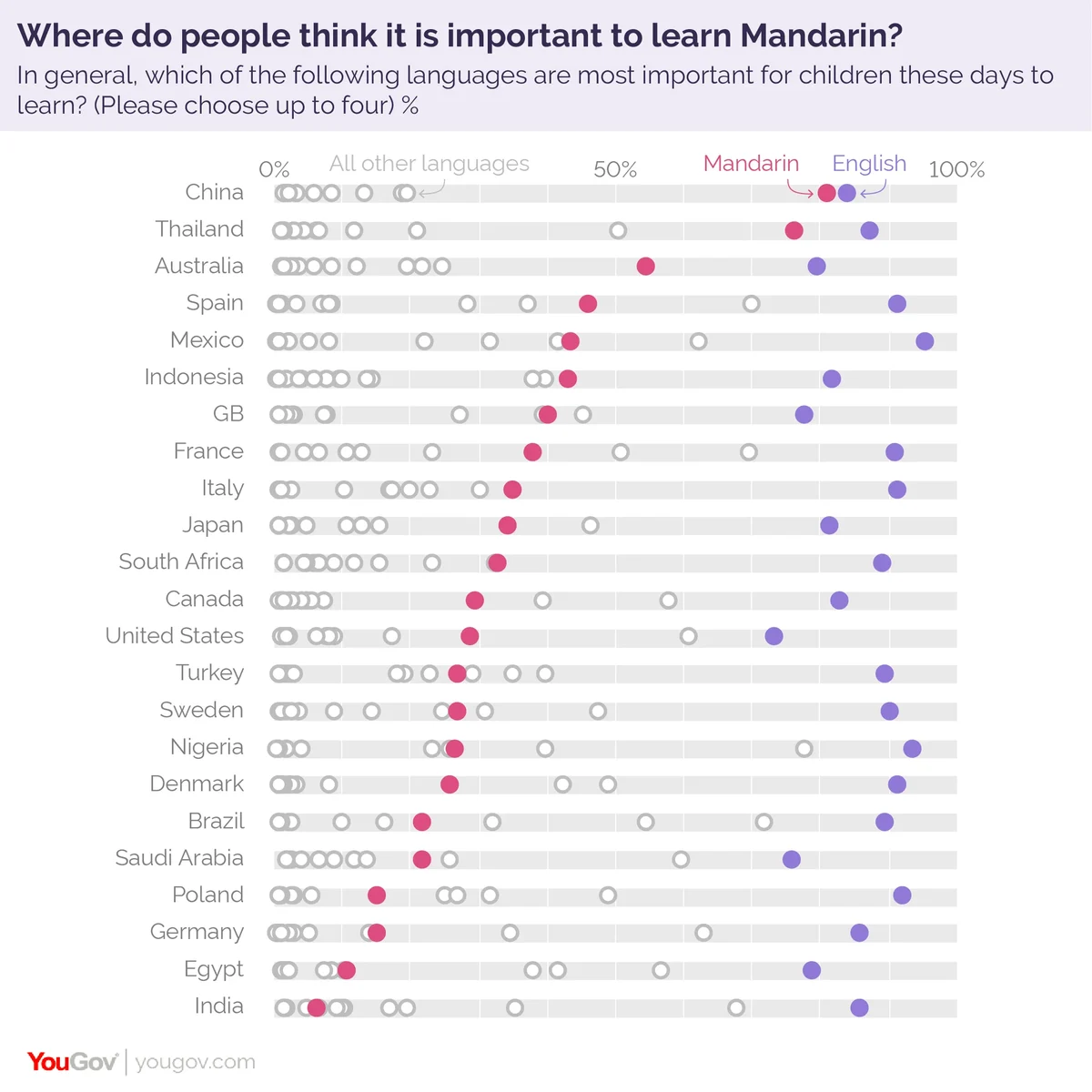Across the world, English is still universally seen as the most important language for children to learn
Much has been made about the rise of China, with some scholars going so far as to predict that the 21st century would be the ‘Chinese Century’ in the same way as the 20th century was the American century.
In response to this, a joke of unknown origin has it that “the pessimists are learning Chinese, the optimists are learning English”.
For now, according to results from the YouGov Cambridge Globalism Project, the optimists outnumber the pessimists.
Respondents in 23 countries were asked to pick up to four languages from a list of 15 that they thought it is most important for children these days to learn. English topped the charts in every single country – even ahead of other nation’s national languages – with 73-95% of people including English in their selection.

Calculated as a simple average across countries (i.e. not accounting for population size), Mandarin Chinese ranks second, but a distant second. Excluding the 81% of people in China who think the language is important to learn, between 6-76% of respondents in each country included Mandarin Chinese in their list of important languages (with an average of 31%).
Those living in Thailand are substantially more likely than people in other nations to emphasise the importance of Mandarin, with 76% naming the languages on their list – 22 percentage points ahead of Australia, the next most Sinophilic nation.
Indian respondents are the least convinced of the necessity of Mandarin, with just 6% saying it was important for children to learn. Egyptians (10%), Germans (15%) and Poles (15%) were likewise unconvinced that children would most benefit from learning China’s most commonly spoken tongue.
French and Spanish: the battle for third place
French and Spanish follow as the next most important languages. While a simple average puts Spanish and French neck and neck at 31% apiece across the other nations, the French language ranked 2nd-5th in importance each other country, while the Spanish range was slightly less positive at 2nd-8th.
The divide seems to be between Europe and the Americas (which tend to see Spanish as more important) and Africa, Asia and the Middle East (which tend to see French as more important).
Perhaps most worryingly for Spanish prospects, the world’s two most populous countries – India and China – are noticeably more likely to see the importance in French than Spanish (at 35% to 17% in India and 18% to 6% in China).
Photo: Getty








